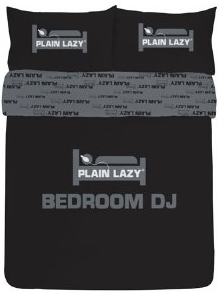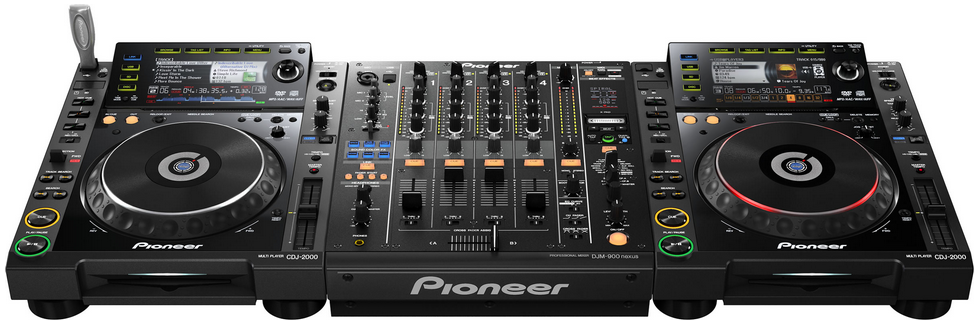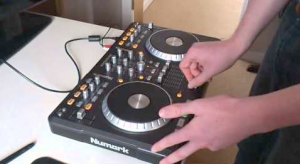
I’m one of the moderators of the busy Digital DJ Tips Forum. Because of this, I get a unique perspective on the thoughts, questions, fears and concerns of hundreds of people who are starting out learning to DJ, every single day.
Today I’d like to answer some of the questions that come up again and again among beginners on the forum. How can I learn to DJ? what gear should I buy? What about scratching? What’s the minimum I need to start? Where can I get help choosing DJ gear? Should I be learning to DJ on “pro” DJ gear? Here is our take on these and other common queries among new DJs:
“What can and can’t be taught when learning to DJ?”
Most experienced DJs agree that reaching a certain degree of skill in DJing is something that can be taught. You can be show how to use the hardware and software, how to get the basics of mixing down and so on. But the next stage – the ability to create “magical moments” – is harder. That’s because there are no rules on how to do this. It’s why if you want to learn to DJ, you have to accept that this is an art as well as a science.

However, there are some general truths that apply. You have to have a genuine love for the styles of music you play. And importantly, you have to be passionate about presenting your take on them to an audience. After all, you are not playing this music purely for yourself (unless you only DJ by yourself in your bedroom). Rather, you’re playing for a crowd that wants to be entertained. On some level, crowds can react to your passion for music. Put it another way: They will most certainly notice if you are not fully behind what you are doing.
But although this second part can’t be taught, you probably are already nodding your head saying: “I am so into this music! That’s going to be no problem for me, this is truly all I want to do!”
If so, the good news is that you’ll pick it up along the way – as long as you do all you can to play in front of other people. That part is really the key to developing the skill of delivering those “magical moments” that mark DJs apart from jukeboxes or shuffle modes.
“Will the ‘right’ gear help me to learn better?”
Of course the software and hardware matter a lot. But they are just tools that are there to help you to get to your goal of becoming a good DJ and creating this magic for people.Think about painters and artists: Some prefer acrylic colour, while others do well with pastels and some even use a simple pen. Meanwhile, there are those who use computers and digital installations to express their art.
The same goes for DJs. There are some that can reach their goal by using two 30-year-old turntables and a 40 bucks used mixer. But there are also those who choose Midi controllers, synthesisers, sequencers and so on which costs thousands. It totally depends on what you want to create and what suits your workflow. But it’s important that the tools don’t not stand in the way of your creativity. It’s also important that you do not waste time trying to learn “must-have” tools that in the end, you do not need. Get a basic setup, and begin.
“So which is the right type of gear to learn on?”
So here are some typical questions: What is the best controller? What is the best controller below XXX dollars? What is the best DJ software? Are CDJs better than Midi controllers? If not, why am I told CDJs are more “pro”? So what do I really need to start DJing?

Let’s start by looking at why many DJs say DJing has to be done on CDJs. Because many DJs tend to be older folk, and (especially the more successful of them) have no need to care about value for money, it’s easy for them to say you need to use traditional, expensive gear. It’s how they’ve always worked, and it’s how they paid their dues.
However there are many pros (especially newer DJs) who don’t use CDJs at all. There are others who use them simply to control DJ software, which makes the CDJs effectively very expensive Midi controllers. Truth is you can buy Midi controllers that do a similar job for $200!
“But what about scratching and stuff?”
The iconic image of the DJ is headphones on, performing a scratch with his hand, right? Some DJs who learned scratching on vinyl of course like the feel of a turntable and tend to use DVS (digital vinyl systems) – digital gear hitched up to old-style turntables and mixers. However there are very good modern DJ controllers with either motorised platters (Numark NS7) or excellent jog wheels.
We particularly like the Reloop Terminal Mix 2, Reloop Terminal Mix 4 and Vestax VCI-380 controllers for this. With these, you can scratch equally well – see DJ Angelo’s Reloop Terminal Mix routines. Indeed, Digital DJ Tips has an imminent course on how you can scratch on practically any cheap Midi controller with jogwheels. So again, we’re going to show you it’s possible to learn on much cheaper than pro gear.
“So you’re saying the pros are wrong?”
No, just that we think what’s best for them probably isn’t what’s best for for you. The staff here at Digital DJ Tips has a mass of professional DJ experience. We all use digital gear in all of its forms every day – more so than many of the “pro” DJs, who use traditional gear predominantly.

So please trust us when we say – you can learn to DJ properly on cheap, portable digital DJ gear. If you think you need expensive, bulky, traditional DJ gear just to learn to programme music for parties and start to lay down the basics, you might never even begin! Please don’t let this kind of thinking stop you.
Sure, “pro” gear is in clubs, and sure, maybe in the end you’ll want to learn to use it. But the good news is that the skills are transferrable – if you go about learning them in the right way. And actually, technically there’s no reason why you can’t also use modern DJ controllers in clubs, too, avoiding their gear entirely. Increasingly that’s exactly what modern digital DJs are doing.
“OK, so what do I actually need to start DJing?”
i. Minimum set-up to learn to DJ
Simply, you need a laptop, headphones, free DJ software and a mono splitter cable. That’s the minimum. In fact we even have a basic hour-long video course to teach you how to get started with nothing more than that set-up. Find out more about it here: Learn To DJ With Virtual DJ Home.
ii. Recommended set-up to start DJing
With the above you can get started. However our recommended set-up would be a laptop, a Midi controller with a built-in audio interface (or one without, and a separate DJ audio interface), DJ software, DJ headphones and some kind of amplified monitor speakers (ie you shouldn’t rely on the speakers built into your laptop). The best thing to do to start comparing brands is to download our free, 162-page DJ Controllers: The Ultimate Buyer’s Guide PDF, which also details how to choose software.
“So I’ve done the above! Am I ready to learn to DJ?”
I’d say you are. You understand what can and can’t be taught, You’ve got a passion for the music, and you’re comfortable that digital is as valid as any other way of learning. You’ve also got yourself a nice, simple first set-up.
You should by now have signed up for our free weekly Learn To DJ Free email video course. But in our opinion, you should also be bold and go and book yourself a DJ date. Nothing sharpens practice sessions like knowing time is ticking away to your first gig…
If you do the latter, you might consider investing in our premium How To Digital DJ Fast course, which has taught thousands of DJs enough to play in front of an audience (here are some of their DJ success stories), and aims to do so in four weeks flat.
And most importantly, remember that at its heart, DJing is about creating moments of magic through playing pre-produced music (and sometimes remixing it live). All the software and hardware you use to achieve this is are only tools, and you’re no less a DJ whatever your choices.
Have you got any views on the best way to get started in DJing? How did you begin? Please share your thoughts in the comments.






![Sync Button, EQ Transitioning, Duplicate Files, DJ Lighting [Podcast] Sync Button, EQ Transitioning, Duplicate Files, DJ Lighting [Podcast]](https://cdn.digitaldjtips.com/app/uploads/2024/03/20175506/podcastwebsiteidea-150x150.jpg)
